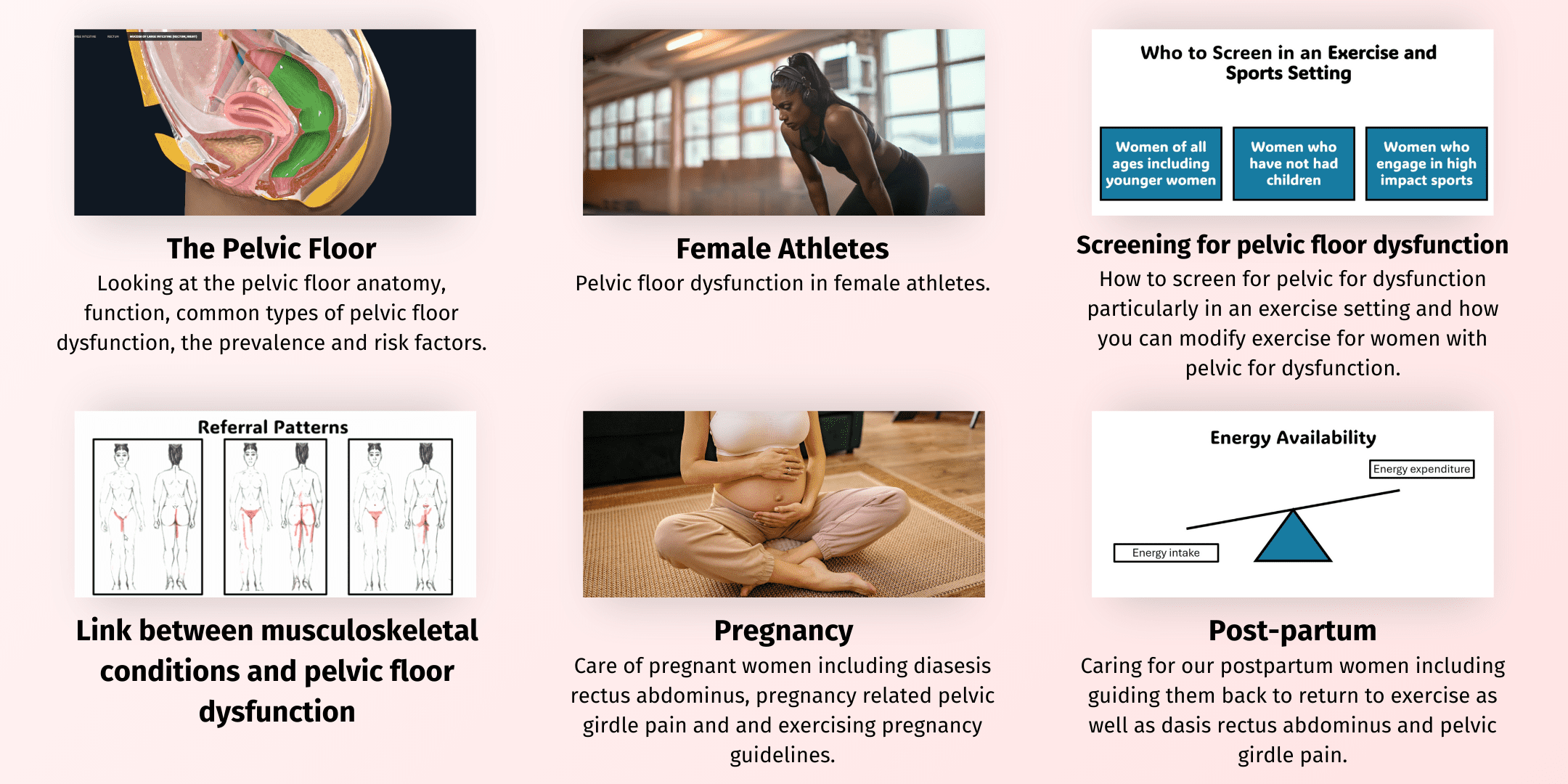This is THE COURSE for health practitioners wanting to establish themselves as a reputable and knowledgeable clinician for women’s pelvic health related presentations!
This one-day practical course is led by Pelvic Health Physiotherapist and course developer, Courtney Nance, and brings together the relevant practical clinical applications, exercise interventions and related patient management processes.
This course will include the use of screening tools, performing physical assessments, manual therapy approaches and exercise interventions.
You will learn how to recognise the signs and symptoms of pelvic floor dysfunction, take appropriate action within your scope of practice and know when to refer on/co-manage with a Pelvic Health Physiotherapist.
Please note, internal vaginal exams and intrapelvic treatment are NOT covered in this course.
This course includes an Online Pre-Course Program.
A 17 hour, in-depth program containing 68 high quality video based presentations providing detailed and expert guidance from the course developer. Once purchased, you will retain access to the online learning modules for life, including any updates to the program.
What do you get?
This course is open to all allied health professionals: Physiotherapists, Osteopaths, Chiropractics, Myotherapists, Remedial Massage Therapists, Exercise Physiologists.
This is a professional development course and does not qualify you as women’s pelvic health specialist. This course aims to raise awareness and improve interdisciplinary lines of communication and overall management of women’s pelvic health.
By completing this practical workshop, you will receive a certificate of completion which can be used to claim 8 hours of face-to-face CPE and 17 hours online CPE totalling 25 hours.
Not ready to commit to the practical course yet? You can also choose to purchase just the Online component from HERE.
ABOUT THE PRESENTER
Courtney Nance is a Pelvic Health Physiotherapist based in Brisbane QLD. After graduating in 2017, Courtney worked as a Musculoskeletal Physiotherapist in private practice. However, it wasn’t until she attended an introductory women’s health course that she found her true passion.
Since then, Courtney has devoted countless hours to continued professional development. She currently works full time at a specialist women’s health Physiotherapy practice, All Women’s Health, where she enjoys treating women with a wide range of concerns including incontinence, prolapse and pelvic pain.
English Language: Please note that proficiency in written and verbal communication in English is essential for participation in ACE courses. Being able to understand and communicate clearly in English is a requirement for safety purposes, and to ensure that you and your fellow students get the most out of your learning experience. If it is deemed that your English proficiency is not suitable for safe participation in the course, this may result in your registration being cancelled and you may not be eligible for a refund.




